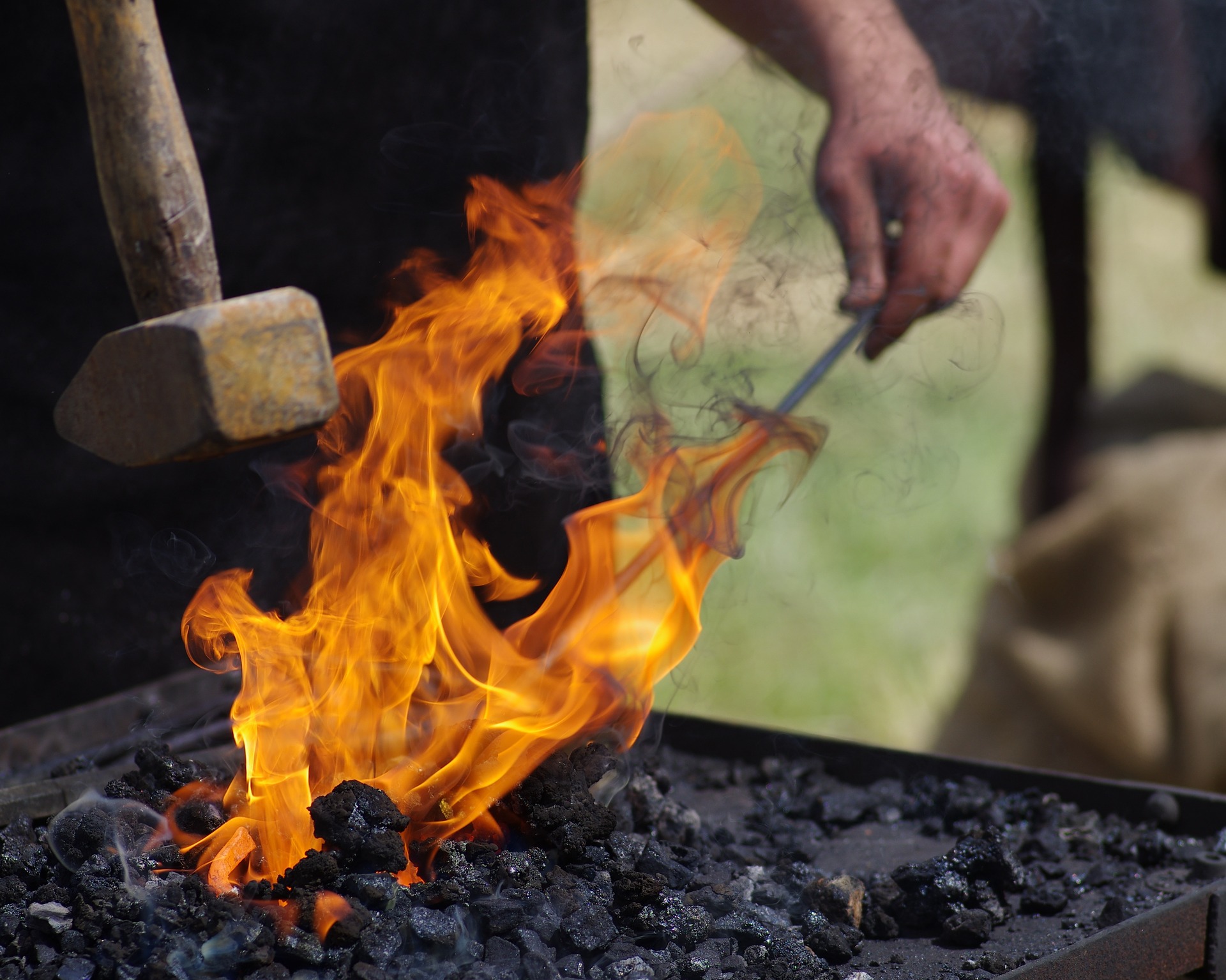Metalsmith
Metalsmithing is a crutial profession in most cultures due to the importance of metal items for most of society. Metalsmiths manufacture everything from nails to swords and armor to intricate jewelry and decor, with each specialization within the field selecting its own subset of metals and subsequent specialization in the type of items produced. Skilled metalsmiths also utilize Metalmancy when working the metal to emphasize particular qualities of the metal, with the best metalsmiths weaving enchantments into the metal itself as they work.
Career
Qualifications
A metalsmith typically learns their trade through an apprenticeship. The length of this apprenticeship depends upon the skills and aptitudes of the student as well as the type and quality required for their chosen field. Metalsmithing specialties range from blacksmithing to jewelry crafting to tool manufacture. While skills in Metalmancy are not required they do enhance the quality of the final product and therefore metalsmiths with a metalmancy background do obtain better contracts.
Payment & Reimbursement
Metalsmiths obtain payment through the sale of their wares. The value of each item is directly proportional to the type of the item and the quality of its manufacture.
Perception
Purpose
Metalsmiths are crutial to society as a whole due to the vast array of items manufactured through the use of metal. A metalsmith could forge weapons, armor, cutlery, jewelry, horse shoes, coins, locks, or even coins, to name a few of the more common products that fall under their purview. The specialties of a metalsmith depend upon their metals of choice. For this reason metalsmiths are typically classified into subcategories depending upon their metals of focus.
Social Status
A skilled craftsman is well respected for their craft and their important contributions to their town's status or ability to self-equip their defenses. Those less skilled or those tasked with forging more simple items are still treated with respect due to the importance of even the most humble metal items. Nails are not glamorous but they are still important, after all.
Operations
Materials
Metalsmiths utilize a large variety of metals, with each subclassification specializing in their own subset of these metals. The manufacture of an item with any mentionable quantity of metal will involve a metalsmith at some part of the process.
Workplace
Most metalsmiths work in a forge. This forge would include a method to heat up the metal, as well as a mold or an anvil and hammer to shape the metals. Some forges also include tools to polish and buff the final product.
All active forges are hot, and most are rather noisy. They hold the smell of burnt metal.
Provided Services
Metalsmiths perform any metal working required within their chosen subset of the profession. These techniques can include forging, casting, folding, stamping, and/or polishing.
Metalsmiths also frequently also utilize their imperium when crafting, tapping into the magical fields to forge stronger alloys or more delicate decorations through the use of Metalmancy. The most skilled metalsmiths are capable of enchanting items during their creation process, rather than after, leading to more durable and potent enchantments.
Dangers & Hazards
Working with metal typically requires either heating the metal or melting it completely. Most specializations also require working the metal through hitting it with great force. For this reason metalsmiths face the greatest dangers from fire, heat, dehydration, and crushing impact. All of these potential mistakes are avoidable, leading to the best metalsmiths also valuing personal safety in addition to quality.
Alternative Names
Forgemaster
Type
Artisan
Demand
Staples to Luxuries, dependent upon the item and its quality
Famous in the Field
Related Technologies






Comments